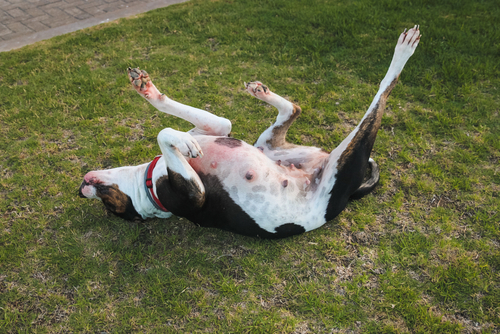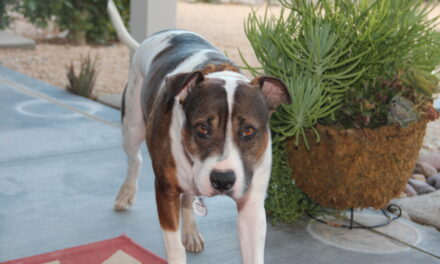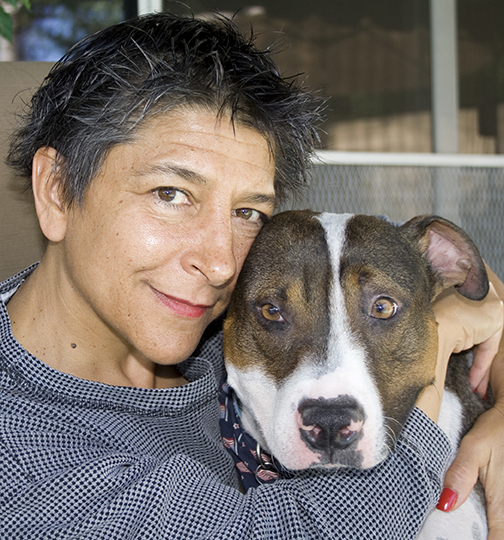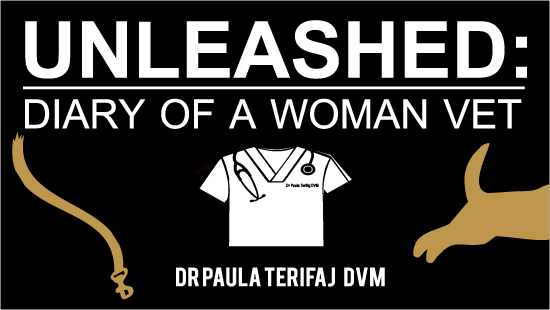Throughout my veterinary career, I often came to the aid of rescue type people low on funds. So, one afternoon, I grabbed my medical bag and made a house call. The dog in question had ‘skin problems’ that had not responded to treatment. I would soon learn that the friendly stray dog, picked up by a nice guy, never received veterinary care. Nice guy was broke. He had only been administering some antibiotics he happened to have. Fate was about to happen as I fought back the tears. That story is in Chapter 16 of my book, Unleashed: Diary of a Women Vet.
Fortunately, during veterinary school, I discovered my special interest in dermatology. Later, while in practice, rarely a day went by when I didn’t have at least one appointment involving skin. Derm, as we called it, was as popular as the mysterious cases of diarrhea and vomiting also taking a seat in the waiting room. Unlike some of my colleagues, I was always up for the hairy challenge.
Only your veterinarian can determine the cause of the itch. If fleas are the offender – that’s an easy fix. Eliminate all fleas – on the pet and its environment – problem gone. If your vet becomes suspicious of food intolerance – based on historical details and pattern hair loss – a restricted diet will be recommended for several weeks. Restricted diets consist of a single source of protein and carbohydrate. Using only two ingredients, it’s simple meal preparation and a real cost saver compared to prescription diets. Don’t be tempted to switch to different brands of pet food. Hope is not a diet trial your vet can evaluate. When food is determined to be the culprit – problem solved. Once again, easy fix. The bitch of the itch is up next.
Allergic dermatitis, commonly referred to as canine atopy, is no easy fix. Atopic dogs suffer when their immune system fails to recognize innocent plant pollens and grasses. So, what’s growing in your yard or other yards and fields may come to visit your dog. It’s not fleas. It’s not the food. It’s a real problem.
Atopic dogs will aggressively scratch, chew, and lick. Most often the paws, ears and bellies become red and inflamed. This self-inflected trauma often leads to hair loss, bacterial infections and a visit to the vet for relief. During my early years in practice, it was both commonplace and effective to use the anti-inflammatory drug, prednisone – a steroid. The most common side effects being increased water drinking and appetite. In my opinion, it was a satisfactory tradeoff for the relief provided. Once the dose could be decreased and tapered to be given only once every other day – most dogs did well long term. However, it wouldn’t be long until pharmaceutical companies saw the opportunity for stronger, more expensive anti-itch drugs. After my retirement in 2010, the two new kids on the block would be Cytopoint (monthly injections) and Apoquel (daily tablets).
With proper care and treatment, Brad Pit made a full recovery. During the course of his recovery, he taught me how to better diagnose and treat atopic dogs. I learned the importance of weekly bathing with a medicated shampoo, which greatly reduced his pharmaceutical dependence. While bathing may be a hassle, it’s worth the time and effort. Lather up and leave on for 10-15 minutes before rinsing. Groomers are well adapted for the task – only if you trust them to follow the drill. Your vet, not Petco, will carry the most effective medicated shampoos. The Douxo brand worked best for Brad, who lived happily ever after!
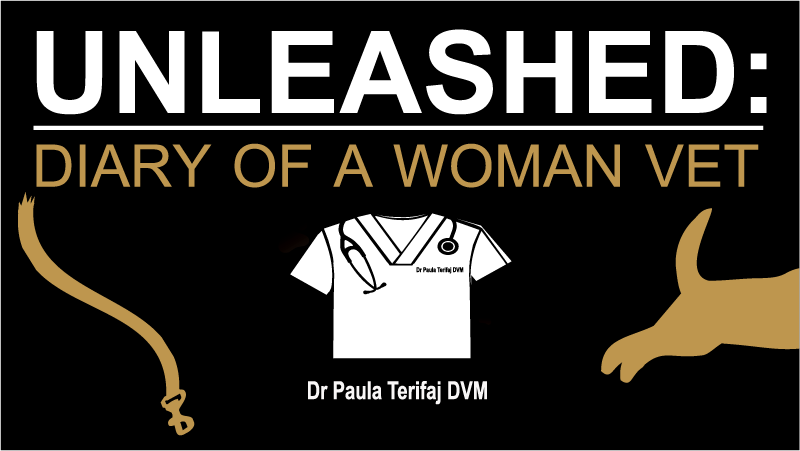
BOOK LAUNCHED!
There is always a why and here's mine.
I'm confident that I've packed these pages with knowledge that will positively impact your pet's life. Learn how to reduce costs for veterinary care - keeping your pet healthy and living longer. That is my why.

